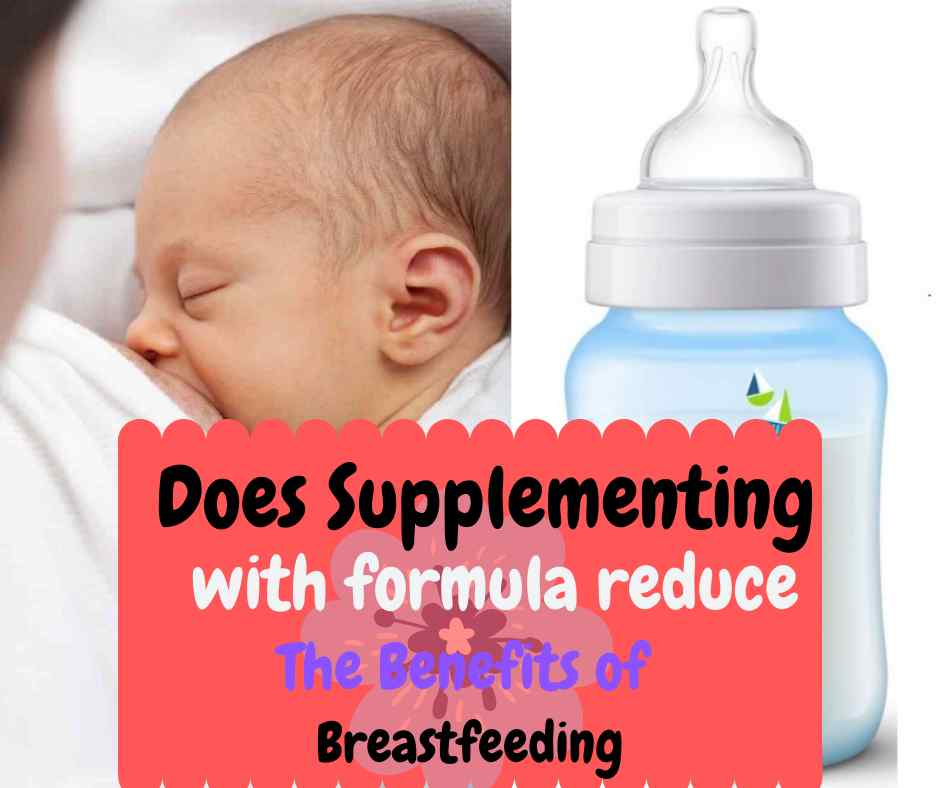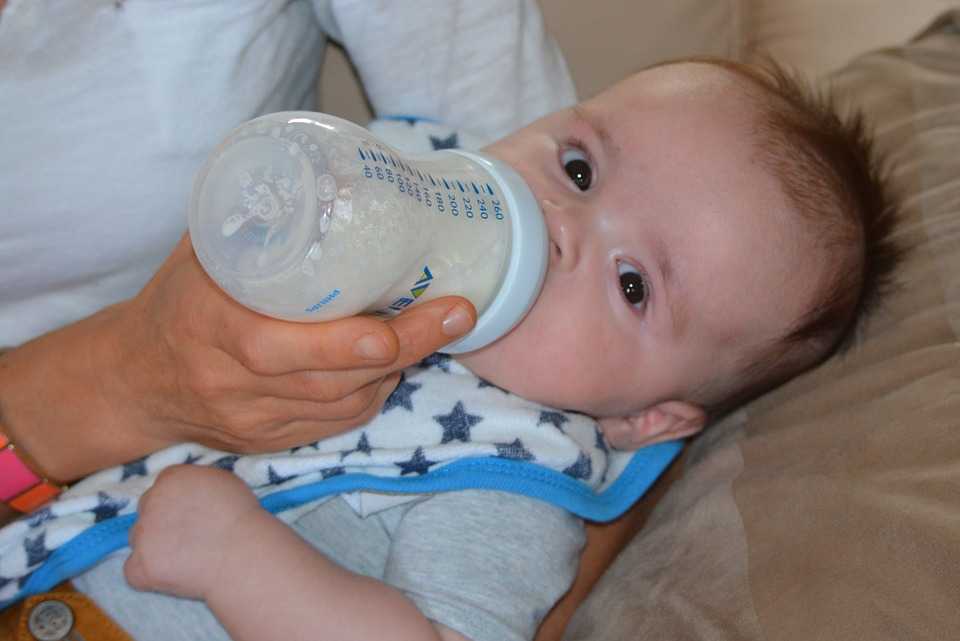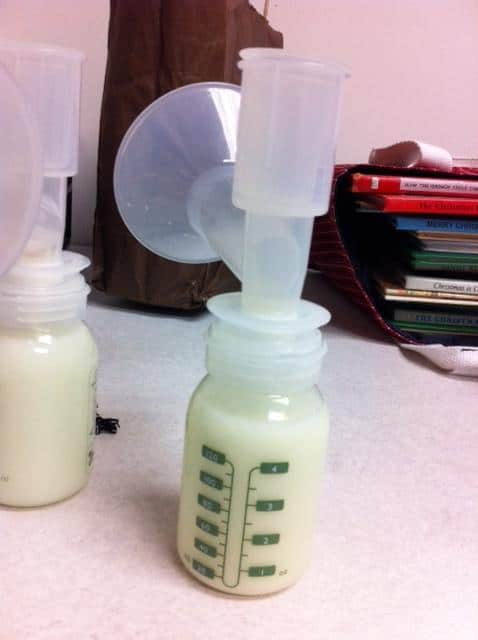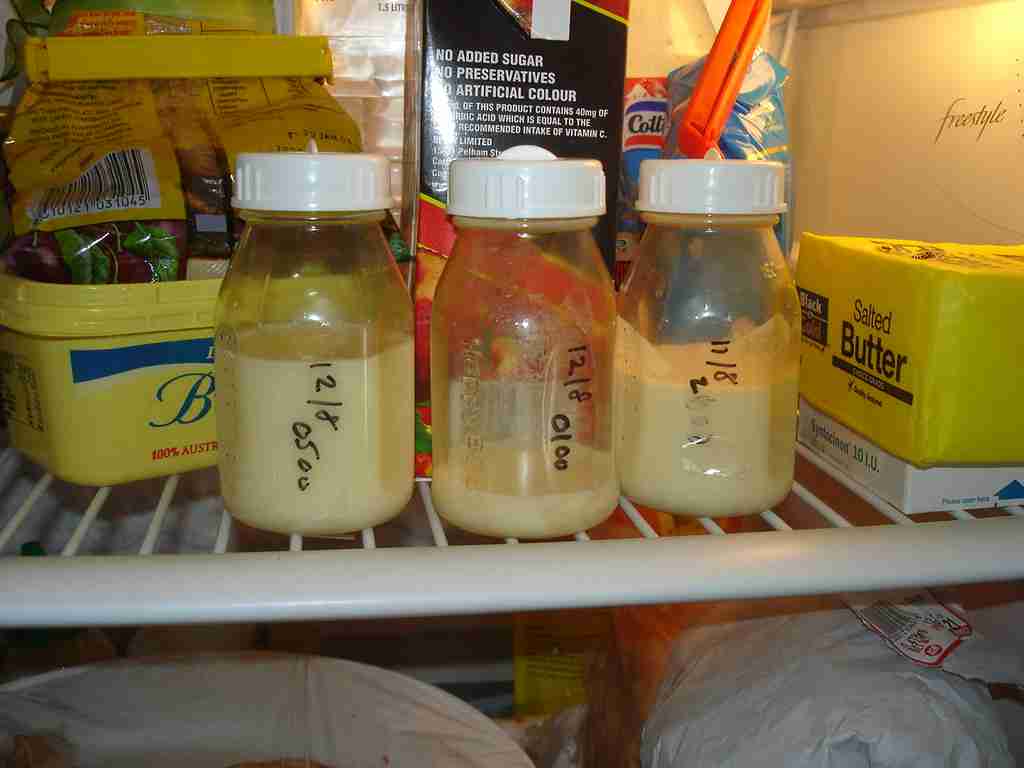Does Supplementing With Formula Reduce The Benefits Of Breastfeeding

Does supplementing with formula reduce the benefits of breastfeeding? There are lots of benefits that come with breastfeeding for mothers and their babies. Supplementing with formula doesn’t mean your child will suffered from bad effects or something. Your baby will not be denied the many benefits that your breast milk offers when supplementing with formula.
After birth, the first few weeks of a mother’s breast milk contains vital nutrients and protection your baby needs for optimum growth and survival. However, due to personal or medical reasons, some moms may end up supplementing formula milk to their baby.
Table of Contents
What is Supplementing?
Supplementing is simply when give your baby formula milk to complement breastfeeding. Mothers choose to supplement because of personal reasons, convenience or out of necessity (e.g., low breast milk supply).
Mothers considering supplementing formula milk to their babies do so due to various reasons. Some mother sometimes feels guilty doing it. One question that is frequently asked by these women, and that is – does supplementing with formula reduce the benefits of breastfeeding?
Coming here is not by coincidence; you have come searching for answers and i have some reliable answers to your questions. So let dive into it straight away!
What are the Benefits of Breastfeeding?

The benefits of breastfeeding have shown that breastfeeding has more benefit for mom and baby. According to NHS, babies derive long-term benefits from breastfeeding which can last right into adulthood.
There is a positive effect in any amount of breast milk. Longer breastfeeding comes with greater benefits and lasting protection for your baby.
Here are some health benefits of breastfeeding:
- Your baby is protected from infections (e.g., Ear infection), with more breastfeeding you visit the hospital less.
- More breastfeeding reduce diarrhoea and vomiting in baby
- Protect your baby from sudden infant death syndrome (SIDS)
- Prevent childhood leukaemia
- Reduce chance of obesity as a toddler and in adulthood
- Reduce cardiovascular disease in adulthood
Does Supplementing With Formula Reduce The Benefits Of Breastfeeding?

The answer to does supplementing with formula reduce the benefits of breastfeeding? Makes more sense if only we can understand the impact it has on a baby’s feeding pattern and the various alterations that comes with it.
Supplementing with formula too early is what medical experts try as much as possible to discouraged. It doesn’t mean your child will suffered from horrendous effects or something. Your baby will not be denied the many benefits that your breast milk offers when supplementing with formula.
However, if formula supplementation is introduced much earlier (first six weeks postpartum) the benefits of breastfeeding could be reduced. Supplementing too early can potentially reduce the benefits of breastfeeding in the following ways: Reduced milk supply, nipple confusion and truncate the duration of breastfeeding etc.
The Effects of Supplementing with Formula on Breastfeeding
There are many benefits a baby derives from breast milk and these benefits are important in the later days of the child. Lower chance of infection, respiratory disease, provide strong bones, allergies, prevent obesity and many more.

There are many changes that occur during supplementing with formula that could upset your breastfeeding pattern and in turn, reduce the benefits your baby derives from breastfeeding. Below are factors resulting from the impact of supplementing formula milk for your baby.
Less milk supply
There is less room in a baby’s tummy for breast milk when they are given formula, your baby will take in less of your milk. Your baby’s desire for more of your milk may reduce as formula milk stays longer in your baby’s stomach. When the process goes on for long it signals your body to produce less milk because there is less need for it.
Changes in suckling pattern
Babies take formula milk in feeding bottles with silicone nipples that are firmer and often offer a faster milk flow. It may affect breastfeeding as it can interfere with her ability to latch onto your breast. This leads to giving up breastfeeding much earlier than expected because it makes transition little more thought-provoking for both baby and mom.
Infant’s gut microbiome
There is disruption of natural flora in your baby’s intestine when introducing formula in the first few months. There is a stronger, protective bacteria present in an exclusively fed baby intestine. Enough time is provided for your baby’s intestines to develop and receive the good bacteria your breast milk provides when breastfeeding in the first few months of birth.
The changes done by formula supplementation to the neonatal gut environment is the cause of allergic conditions in childhood and adulthood, autoimmunity disorders, and responsible for mucosal inflammation, according to this study (more information here). Therefore, breastfeeding provides your baby protection against infections and reduce the prevalence of allergies.
Reduce expected time of Breastfeeding
When there is less need for break milk from your baby, your breast milk supply reduces. I have pointed out this point before. Because silicone nipple makes sucking less work for your baby, they may likely lean more towards taking more formula as the milk flows faster. With time they completely stick to their bottle feeding.
Many health bodies endorsed exclusive breastfeeding for infants until age 6 months and breastfeeding along with solids until 2 years old. Examples of these bodies are: World Health Organization (WHO), the American Academy of Pediatrics (AAP), and the American Medical Association (AMA) etc.
How to Know Whether Your Baby Is Getting Breast Milk Enough?
Every mother wants her baby to grow and be healthy. To know whether you baby is getting enough breast milk, there are few signs that will reassure you that the right amount of breast milk is consumed by your baby. Here are some of the signs:
1. Wet and Dirty Diapers
baby poop a lot and soil their diaper frequently – In a 24-hour period, a baby leave you with at least six wet diapers and three or more stools, after the first few days of birth.
2. Weight Gain
During the first five days babies are expected to lose about 10 % or more of their weight. They continually gain their weight back during the first three months, baby should gain half an ounce to an ounce a day during this period and between 3 and 6 months they gain half an ounce.
3. Frequent Breastfeeding/ Nursing.
During the first month baby is expected to nurse at least eight to 12 times in a 24-hour period and nurse at least seven times after that. It is a good feeling see your baby is getting enough breast milk to grow well.
Reasons for Supplementing Formula to Breast Milk

When a baby isn’t gaining weight even on exclusive breast milk shows something is wrong. You may feel the need to switch to formula, especially going back to work or when you’re away. Sometimes you get confused, wondering if it is okay to top up formula to breastfeeding or combine feeding.
Deciding whether to go all out for breastfeeding or supplementing with formula depends on what is deem fit for the both mother and her baby. Apart from medical reasons – moms could choose to use formula for supplementation. Whatever your reasons are; I have numerated some of the likely reasons why mothers introduce formula.
Breast Milk Supply Issue
A low supply in breastmilk can be as a result of some many reasons. For some mother, physiological reasons could impact their milk supply. In a situation where a new mom have an existing thyroid problem or undergone a breast reduction surgery and couldn’t supply enough milk they are advised to supplement with formula to meet their baby’s nutritional needs.
First- time moms may perceive their baby is not getting enough breast milk and may consider top up with formula. Mothers should be informed that the first few days of postpartum their first milk (colostrum) supply is expected to be low in volume, and as their babies continue to breastfeed their milk supply will gradually increase.
Therefore, if the shortage of milk supply persist further or their baby gets fussy at feeding time, refuses the breast. Seek appropriate help from a professional for guidance before switching to formula.
Going back to Work
Returning to work a few months after giving birth is another common reason mothers choose to supplement with formula. For some that still continue breastfeeding, when they are away they leave some formula milk with the caregiver for their babies.
However, you can still continue breastfeeding by expressing your milk and leaving the breast milk and preserved in fridge for your baby even as a working mom. To ensure continuous supply of milk, many moms may need to express milk for their baby if they are away for long period.
Weight gain, dehydration or low blood glucose levels
Another reason for supplementing with formula is when baby is dehydrated or has low blood glucose levels. It also could be as a result of your baby not gaining the ideal weight even when breastfed. These reasons can warrant your doctor to prescribe formula milk to salvage the situation.
Newborns on most occasions are expected to lose around 10% of their birth weight within a week after they are born. However, this weigh will generally be regained within two weeks. At this stage the loss of weight by baby is just for the mean time but if you still worried consult a doctor before making a decision.
Breastfeeding in public
Some moms choose to give formula milk to their baby because they find it uncomfortable to breastfeed while they are out in public places. Recently, public places are now welcoming; it has area where you could go breastfeed your baby comfortably.
All states in America have make breastfeeding in public places legal. More people are now considerate and open-minded towards mothers seen breastfeeding in open area.
Is Breastfed Baby Healthier Than Formula Fed?
There are natural immunities passed on to babies through their mother’s breast milk, these immunities provide extra protection from certain illnesses, allergies and chronic diseases for your baby. When comparing if breastfed babies are healthier than formula fed babies, there are some other factors to look at with regards to your baby’s health.
The factors are:
- Their living condition and environment
- Presence of genetically inherited conditions
- Health and nutritional status of the mother, etc.
Can I Give My Breastfed Baby Formula At Night?
New born eats continually during day and at night and it is okay to feed your baby formula at night. However, in the early months of birth it is better to continue breastfeeding. This is because when you don’t breastfeed your baby for a while your breasts will become very uncomfortable and engorged.
The simple remedy to this discomfort is for you to either express your milk then keep for the night or breastfeed your baby some more during the night.
When Can I Introduce Formula To My Breastfed Baby?
There is no specific time to introduce formula, but according to health experts and lactating consultancy, it is recommended to breastfeed baby for at least 3-4 weeks, so as to increase your milk supply and to established breastfeeding routine.
However, certain health condition may warrant early introduction of formula milk to your baby. If you have been following this article, you may have come across these conditions earlier. These conditions may warrant your doctor or lactation consultant to recommend supplementing earlier.
- Baby’s low weight gain
- Dehydration and low blood sugar levels
- Mother having difficulty in producing enough milk for the baby
Whatever your reasons are, you and your family are in the best position to know if it is okay to use formula milk as a temporary supplement for your baby. It is important to know that your baby will benefit more with breast milk, but in a case where you are unable to exclusively breastfeed speak with your doctor.
Can I Mix Breast Milk and Formula Milk in One Bottle?
Your baby may not be able to finish a bottle that is mixed with breast milk and formula and you end up wasting that hard-earned breast milk. For this reason, lactation consultants do advise parent not to mix breast milk with formula.
Feed your baby bottle with formula; if he still seems hungry after you have fed him with pumped breast milk. However, you can mix formula with pumped breast milk to help him get used to the taste, if your baby refuses formula alone at first.
How to Supplement Formula Without Decreasing Milk Supply?
To keep your milk supply flowing while supplementing with formula can be achieved by doing some little task. It is not a rock science but doing these simple things can help keep your breast milk supply coming. Things like expressing milk, skin to skin contact etc., are some of the ways that could help increase milk supply even if you do not breast feeding always.
Expressing milk
When you squeeze out milk from your breast so that you can store and feed your baby later with is it, is known as expressing milk. There are reasons why mom’s express milk, I could be that; you are going back work, your breast is engorged and comfortable, your baby is unable to suck from your breast but wants to feed him with breast milk, baby is in an intensive care at the hospital and most importantly you want to increase your milk supply.
How to express breast milk

The reasons for expressing milk, and the quantity of milk you express, depends on why you are doing it.
Milk express by different women varies in terms of the amount of breast milk. The amount of milk express depends on how often you express, the age of your baby, when you last fed baby, your body and many other things.
Consult your doctor, midwife or lactation consultant if you find it difficult to express milk – as explained by Raising Children Australia
Expressing milk can be done in three ways:
- by hand
- with a hand-held pump
- with an electric pump.
How Breast Milk is Stored

Breast milk can be stored in a special breast milk storage bags or in a sterilized container, it could be kept in the fridge for 8days at 4C or lower. Breast milk is preferable to use within 3 days if temperature is higher than 4C or if not sure of the temperature of your fridge. You can store breast milk for 2 weeks in the ice compartment of a fridge. It can also be store in a freezer at 18C or lower for up to 6 months. (Source)
In a 24-hour period, a cooled breast milk can be carried in a cool bag with ice packs and still remain fresh. To avoid waste, storing breast milk in small quantities is preferred. make sure you label and date it first, if you’re freezing it.
Skin To Skin Contact
Keep your baby close to your body when you are feeding her with formula. Put her in a position as close to when breastfeeding, let her make contact and feel the warmth of your skin. This will increase the chance of longer breastfeeding as it further support, enhanced and maintain your breast milk supply.
Nursing Supplementer
Nursing supplementers help to ensure that your baby gets the nourishment they need, it can help your baby retain a similar suckling pattern when feeding from the breast as natural as possible. Nursing supplementer is found to keep mothers milk supply flowing and can be used on a temporary or long term basis.
A supplementer has a compartment that holds breast or formula milk. A thin tube connects the container and runs towards the nipple of the mother, the tube is secured in place with a tape. The baby receives milk as she suckles on the breast and supplementer at the time.
When to use a Nursing Supplementer
There are circumstances where a nursing supplementer is needed or used. A lactation consultant or a trained professional is needed to closely monitor this process to ensure the right amount of milk supply is gotten by your baby
Use nursing supplementer when:
- there is separation between mom and baby due to prematurity or sickness resulting in low milk production. To re-established moms milk supply also known as re-lactation.
- there is not enough functional breast tissue to sprout a full milk supply for the baby, this is known as primary lactation insufficiency.
- the infant has certain defects such genetic, anatomic, or neurologic conditions present
- there is a loss of functional breast tissue and the woman can’t supply milk to her baby due to a breast reduction surgery
In today’s article, I made researched and came up with the best answer to the question – Does supplementing with formula reduce the benefits of breastfeeding? I am sure you will agree with me that it did.
I believe the answers raised in this post will go a long way to clear every of your concern about the benefit of breastfeeding, the impact of supplementing with formula and whether formula supplementation can reduce the benefit of breastfeeding.
I will like to say that breastfeeding helps your baby to face and overcome challenges that might confront them in their adulthood. Lactation consultants will always advise parents to consider breastfeeding first before supplementing with formula. I am not saying that formula milk is bad or not health for babies but they not allow your baby to derived the full benefits that comes with breast milk.
I hope you enjoyed today’s article! If you would like more information and clarity on this post – does supplementing with formula reduce the benefits of breastfeeding? Let me know at the comment section.
Reference:
- https://journals.sagepub.com/doi/full/10.1177/1941406415591208
- http://americanpregnancy.org/breastfeeding/breastfeeding-and-bottle-feeding/
- https://www.nhs.uk/conditions/pregnancy-and-baby/benefits-breastfeeding/
- https://raisingchildren.net.au/newborns/breastfeeding-bottle-feeding/expressing-working-travelling/expressing-breastmilk
- https://www.nhs.uk/conditions/pregnancy-and-baby/expressing-storing-breast-milk/







